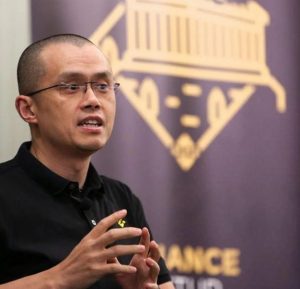South Korea’s new president vows to expand exemptions and benefit cryptocurrencies in the country
3 min readSouth Korea elected a new president. Yoon Suk-Yeol of the South Korean Conservative Party won the election.
Yoon is a former prosecutor and a staunch cryptocurrency enthusiast – a topic that dominated the presidential campaign. Among his campaign pledges, Yoon promised to increase the exemption threshold for capital gains taxes on cryptocurrencies.
Furthermore, the now president-elect has promised to deregulate the cryptocurrency industry. In this regard, Yoon says he will end the ban on Initial Coin Offerings (ICO), in place since 2017.
Election disputed to the end
During the campaign, Yoon faced off against Lee Jae-Myung, the Liberal Party candidate. The election was one of the fiercest in South Korean history. Yoon won with 48.6% of valid votes, while Lee got 47.8%.
That is, the difference between the two was only 0.8%, something practically negligible. As there is no runoff in South Korea, Yoon was automatically elected the winner.
However, Yoon got the most votes from voters between the ages of 20 and 30 (72.5%) as well as those between the ages of 30 and 40 (56.5 versus 38.7%).
Among the main topics of the election, cryptocurrencies was one of the most popular topics. In fact, both Yoon and Lee have announced market-friendly stances in an attempt to win over younger voters.
In this regard, they both went to the opposite side of current President Moon Jae-In of the Democratic Party, who has clamped down on the cryptocurrency market. This caused discontent among younger citizens, who began to turn to the stock market and invest in cryptocurrencies in the country.
With the regulatory changes made by Moon, almost 70 Korean exchanges closed their activities in 2021. The three largest exchanges in the country have five million individual accounts, representing nearly 10% of the country’s population.
From startups to cryptocurrency taxes
Throughout his campaign, Yoon criticized current cryptocurrency regulations, which are “far from reality and unreasonable”. He stated that if elected, he would revise these rules with the aim of taking advantage of the “unlimited potential of the virtual asset market”.
According to the current president, South Korea needs to be an attractive environment for investors and companies. Yonn expressed his desire to attract and develop cryptocurrency “unicorns” – startups with a market cap of $1 billion or more.
Yoon’s proposals are also intended to benefit individual investors, particularly in relation to taxes. The president-elect has pledged to increase the proposed cap on capital gains tax exemption for cryptocurrency profits.
According to the newly passed regulation that will come into effect in 2023, a 20% tax must be levied on cryptocurrency earnings. The exemption will apply to annual earnings of a maximum of 2.5 million won (US$2,024).
Yoon’s pledge is to extend that limit to 52.4 million won ($42,450).
The new president also vowed to be tough on fighting cryptocurrency crimes. He intends to take legal action to confiscate cryptocurrency profits obtained through illegitimate means. The money would not stay with the state, but would be returned to the victims of the scams.
There are currently at least 14 cryptocurrency-related bills in the South Korean parliament. But none of them were analyzed, which leaves a regulatory vacuum and causes insecurity in the sector.
With the lack of regulation, many companies have avoided investing in South Korea, a scenario that could change with the new president. Yoon will take office in May 2022, when Moon Jae-In’s term ends.
4 play-to-earn games are standing out for recent announcements






